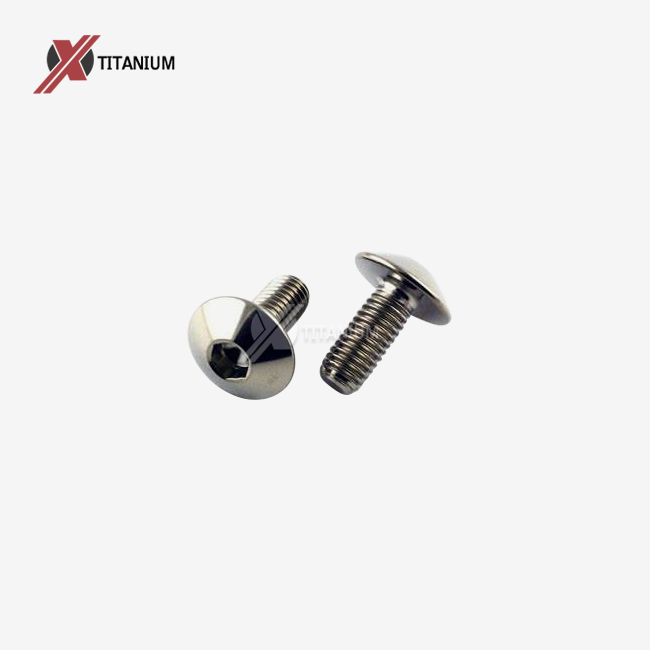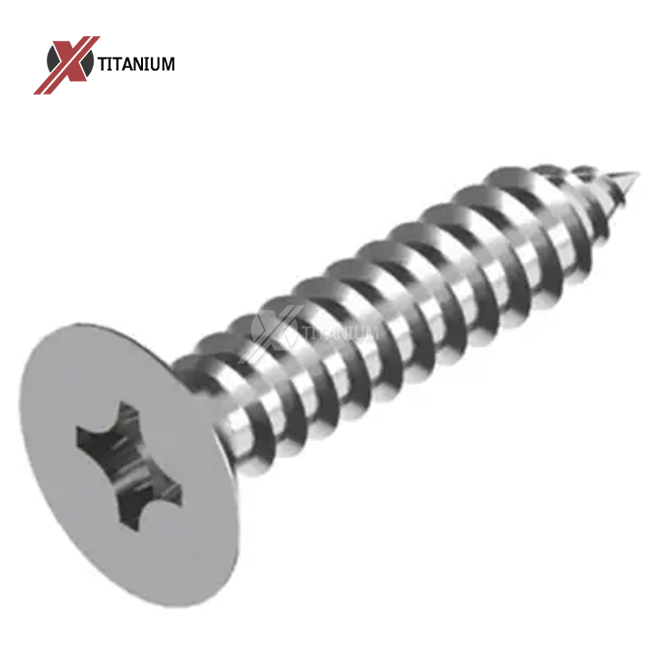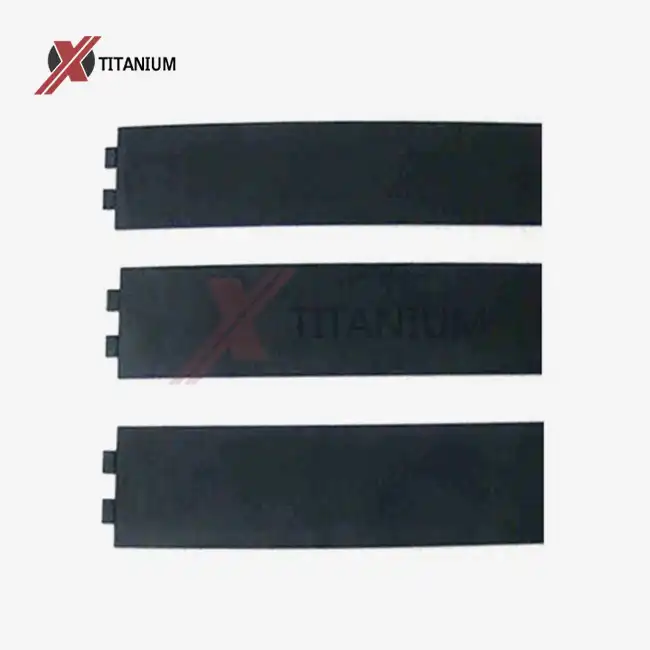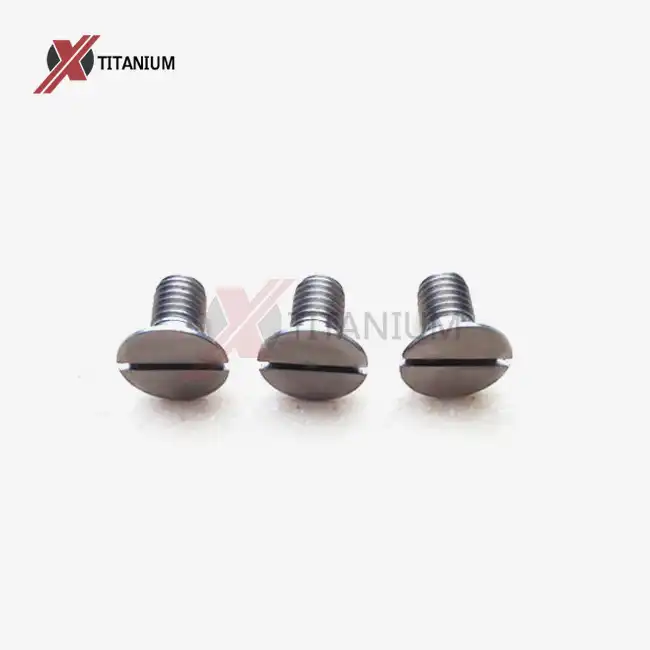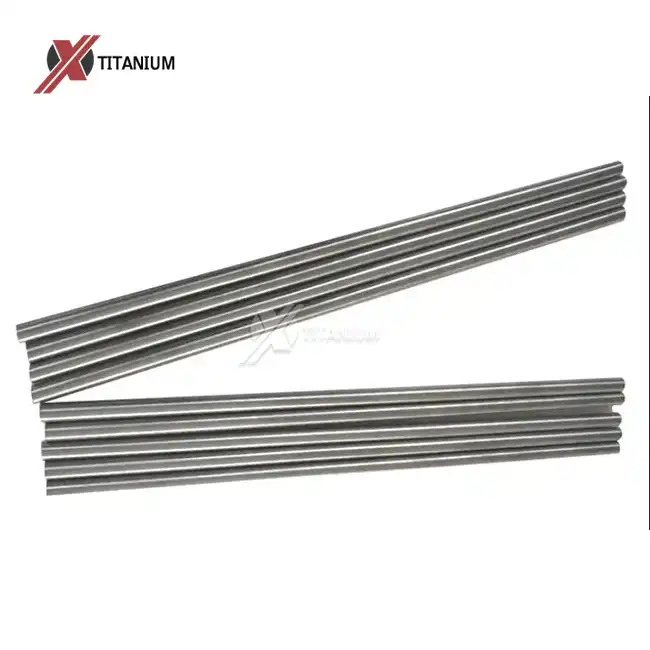The Unparalleled Advantages of Titanium Fairing Bolts in Aerospace Engineering
Lightweight Yet Robust: The Perfect Balance for Aircraft Efficiency
In the aerospace industry, the pursuit of lightweight solutions without compromising strength is a constant challenge. Titanium fairing bolts rise to this challenge admirably, offering a density approximately 40% lower than steel while maintaining comparable strength. This remarkable characteristic allows aircraft designers to achieve significant weight reductions without sacrificing structural integrity.
The weight savings provided by titanium fairing bolts may seem minimal when considering a single fastener, but the cumulative effect across an entire aircraft is substantial. Reduced overall weight translates directly into improved fuel efficiency, increased payload capacity, and extended range. These benefits not only enhance the performance of the aircraft but also contribute to reduced operational costs and environmental impact.
Moreover, the high strength of titanium alloys used in these bolts ensures they can withstand the immense forces experienced during flight, including vibrations, pressure differentials, and thermal expansion. This robustness is crucial for maintaining the aerodynamic profile of the aircraft, as loose or failed fasteners could lead to catastrophic consequences.
Corrosion Resistance: Ensuring Longevity in Harsh Environments
Aerospace applications expose components to a wide range of corrosive elements, from salt-laden coastal air to de-icing chemicals and aviation fuels. Titanium fairing bolts excel in these challenging environments due to their inherent resistance to corrosion. The formation of a stable, protective oxide layer on the surface of titanium provides a natural defense against chemical attack.
This exceptional corrosion resistance offers several advantages in aerospace applications:
- Extended Service Life: Titanium fairing bolts maintain their structural integrity over long periods, reducing the need for frequent replacements and minimizing maintenance downtime.
- Reliability: The consistent performance of these bolts throughout their lifespan ensures the ongoing safety and efficiency of the aircraft.
- Cost-Effectiveness: While the initial cost of titanium fasteners may be higher than traditional materials, their longevity and reduced maintenance requirements often result in lower total lifecycle costs.
Furthermore, the corrosion resistance of titanium fairing bolts is particularly valuable in areas of the aircraft that are difficult to access or inspect regularly. This characteristic provides peace of mind to engineers and maintenance crews, knowing that these critical components will continue to perform reliably even in hidden or hard-to-reach locations.
Thermal Stability: Maintaining Integrity Across Extreme Temperature Ranges
Aircraft operate in environments with dramatic temperature fluctuations, from the freezing temperatures at high altitudes to the heat generated by air friction during high-speed flight. Titanium fairing bolts exhibit exceptional thermal stability, maintaining their mechanical properties across a wide range of temperatures.
This thermal stability is crucial for several reasons:
- Dimensional Stability: Titanium's low coefficient of thermal expansion means that these bolts maintain their fit and tension even as temperatures change, preventing loosening or overtightening.
- Strength Retention: Unlike some materials that may become brittle at low temperatures or lose strength at high temperatures, titanium fairing bolts maintain their mechanical properties across the operational temperature range of most aircraft.
- Fatigue Resistance: The ability to withstand repeated thermal cycling without degradation contributes to the long-term reliability of these fasteners.
The thermal stability of titanium fairing bolts also contributes to the overall safety of the aircraft. By maintaining consistent performance across temperature extremes, these fasteners help ensure the structural integrity of critical components throughout all phases of flight.
Advanced Manufacturing Techniques for Titanium Fairing Bolts
Precision CNC Machining: Ensuring Dimensional Accuracy
The production of titanium fairing bolts for aerospace applications demands the utmost precision and consistency. Advanced Computer Numerical Control (CNC) machining techniques are employed to achieve the tight tolerances and complex geometries required for these critical components.
CNC machining offers several advantages in the production of titanium fairing bolts:
- Repeatability: Computer-controlled processes ensure that each bolt is manufactured to identical specifications, crucial for maintaining consistent performance across the aircraft.
- Complex Geometries: Advanced CNC machines can produce intricate features such as specialized thread profiles or custom head designs that may be required for specific aerospace applications.
- Efficiency: Automated processes reduce production time and minimize material waste, contributing to cost-effectiveness without compromising quality.
Moreover, the precision achieved through CNC machining contributes to the overall reliability of titanium fairing bolts. Accurate dimensions and surface finishes ensure proper fit and load distribution, reducing the risk of failure and enhancing the safety of the aircraft.
Surface Treatments: Enhancing Performance and Aesthetics
While titanium fairing bolts possess excellent inherent properties, various surface treatments can further enhance their performance and appearance. These treatments are carefully selected based on the specific requirements of the aerospace application.
Common surface treatments for titanium fairing bolts include:
- Anodizing: This electrochemical process creates a durable, corrosion-resistant oxide layer on the surface of the bolt. Anodizing can also be used to impart different colors for identification or aesthetic purposes.
- Nitriding: A heat treatment process that diffuses nitrogen into the surface of the titanium, creating a hard, wear-resistant layer that can improve fatigue strength and reduce galling.
- Physical Vapor Deposition (PVD) Coating: This advanced coating technique can apply thin, hard films to the bolt surface, enhancing wear resistance and reducing friction.
These surface treatments not only improve the functional properties of titanium fairing bolts but can also contribute to their visual appeal. In high-end aerospace applications, the aesthetics of visible fasteners can be an important consideration, and the ability to customize the appearance of titanium bolts adds value to the overall design.
Quality Control and Certification: Ensuring Reliability in Aerospace Applications
Rigorous Testing Protocols: Validating Performance and Durability
The basic nature of aviation applications requests that titanium fairing jolts experience broad testing to approve their execution and unwavering quality. These testing conventions are outlined to reenact the extraordinary conditions and stresses that the clasp will experience amid their benefit life.
Key aspects of the testing process include:
- Tensile Strength Testing: Evaluating the bolt's ability to withstand axial loads without failure.
- Fatigue Testing: Assessing the bolt's resistance to cyclic loading, simulating the repeated stresses experienced during flight.
- Corrosion Resistance Testing: Exposing the bolts to corrosive environments to verify their long-term durability.
- Temperature Cycling: Subjecting the fasteners to extreme temperature variations to ensure dimensional stability and performance across the operational range.
These thorough testing methods not as it were approve the execution of titanium fairing jolts but moreover give important information for progressing advancement and optimization of plan and fabricating forms.
Industry Certifications: Meeting Stringent Aerospace Standards
The aerospace industry operates under strict regulatory frameworks to ensure the safety and reliability of all components used in aircraft construction. Titanium fairing bolts must meet or exceed these stringent standards to be approved for use in aerospace applications.
Key certifications and standards relevant to titanium fairing bolts include:
- AS9100: A quality management system specifically tailored for the aerospace industry, ensuring consistent quality and traceability throughout the manufacturing process.
- NADCAP (National Aerospace and Defense Contractors Accreditation Program): Accreditation for special processes such as heat treatment and surface enhancement.
- Material Specifications: Compliance with aerospace material specifications such as AMS 4928 for titanium alloys.
- FAA and EASA Approvals: Ensuring that the fasteners meet the requirements set forth by major aviation regulatory bodies.
Adherence to these certifications and standards not only demonstrates the quality and reliability of titanium fairing bolts but also facilitates their acceptance and integration into aerospace supply chains.
Conclusion
Titanium fairing bolts have emerged as essential components in aerospace applications, offering a unique combination of lightweight strength, corrosion resistance, and thermal stability. Their ability to enhance aircraft performance while ensuring long-term reliability makes them invaluable in modern aerospace engineering. As the industry continues to push the boundaries of efficiency and performance, the role of these specialized fasteners is likely to grow even further.
For those seeking high-quality titanium fairing bolts and other titanium products for aerospace or other demanding applications, Baoji Chuanglian New Metal Material Co., Ltd. offers expertise and a wide range of solutions. To learn more about our products and capabilities, please contact us at info@cltifastener.com or djy6580@aliyun.com.
